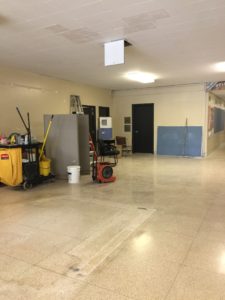As discussed, connected to our larger theme this year of “Getting Our Mojo Back”, last night we held the first of our three critical conversations this year that will both hearken back to give everyone equal footing and dream forward to give everyone an equal stake. Last night’s “town hall” was dedicated to the school’s Jewish Journey these last six or so years, and thank you to the parents who turned out to listen and to share. [For those of you who might have participated had we had made a virtual option available, please know that there will be occasions when we do go hybrid. We just felt/feel that for these conversations, it is easier to navigate live.]
What I’d like to do here, is provide a kind of annotated guide to the slides that were presented – layering in a bit of my own commentary – and ending with both some proposed next steps and opportunities for onboarding more questions and feedback from more parents. Parent voice is critical to our ability to dream big dreams since you, our parents, are our most important stakeholder community and partner. I am making a plea, here, while my word count is still under 200, to please add your voice to the conversation in whichever way is comfortable for you – comment on this blog, shoot me a private email, or make an appointment to come in. This takes the village.

We began by turning the clock back to 2017 or so to remind ourselves of where our journey began. Looking back is never intended to be disrespectful or disparaging of what was – there were, of course, lots of good things happening prior to my arrival (this is not about me!) – but we do want to be honest about what was true. So here’s…
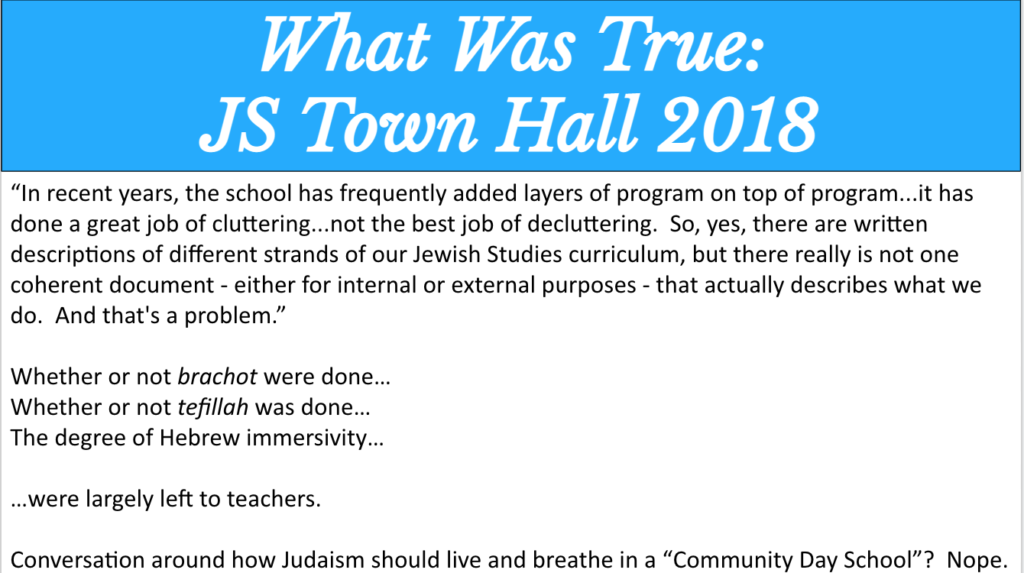
Again, this did not mean that we did not have excellent teachers or that teachers simply showed up each day without having planned their lessons. We did and they did not. But it is fair to say that we had done the work of clarifying much about our program as a whole – its ultimate benchmarks and standards when it comes to academics, and its mission and vision as a “Community” school.
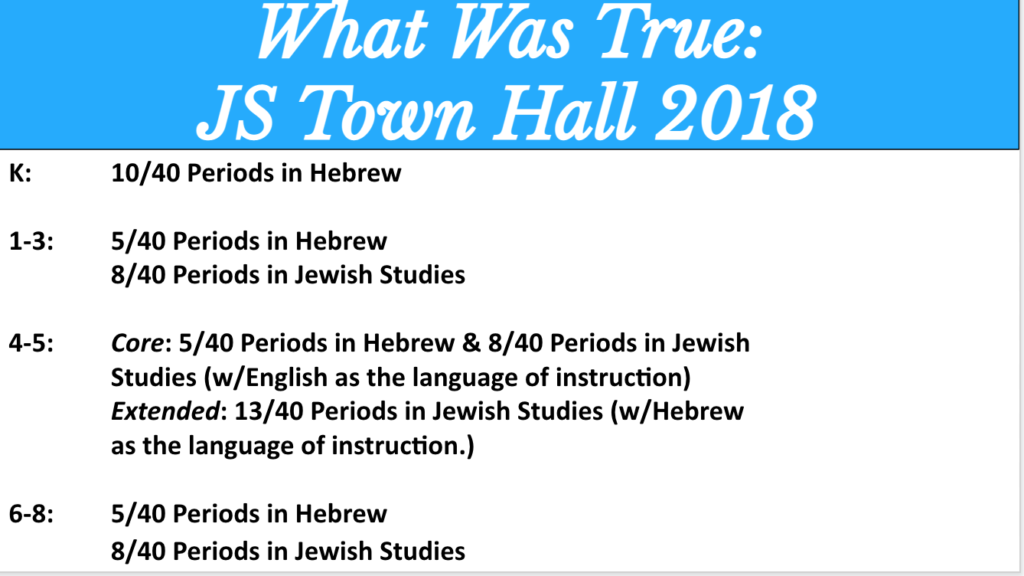
That’s pretty straightforward. That’s how much time we spent in Jewish Studies and how they were divided. What jumps out in the K-5 is the decoupled nature of “Hebrew” and “Jewish Studies” and the mirroring of French in terms of when streaming took place and what we called it.
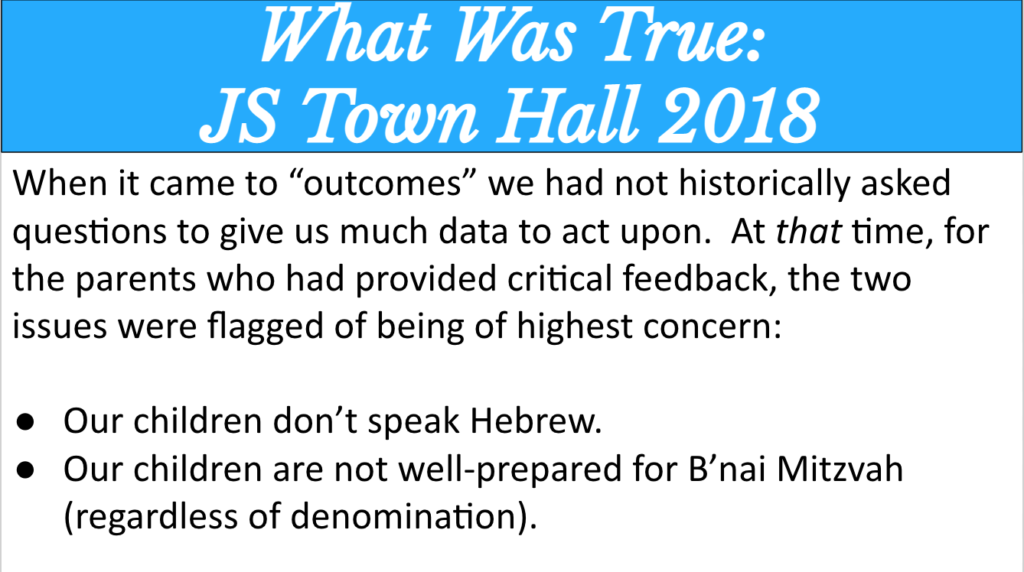
It is hard to measure outcomes without data. But pay attention to those bullet points because the fact they were flagged then by parents as being of utmost concern absolutely guided what happened next. [That’s why adding your voices now is paramount! We really do act based on what you tell us!]
OK, that is what was true at the time. So…
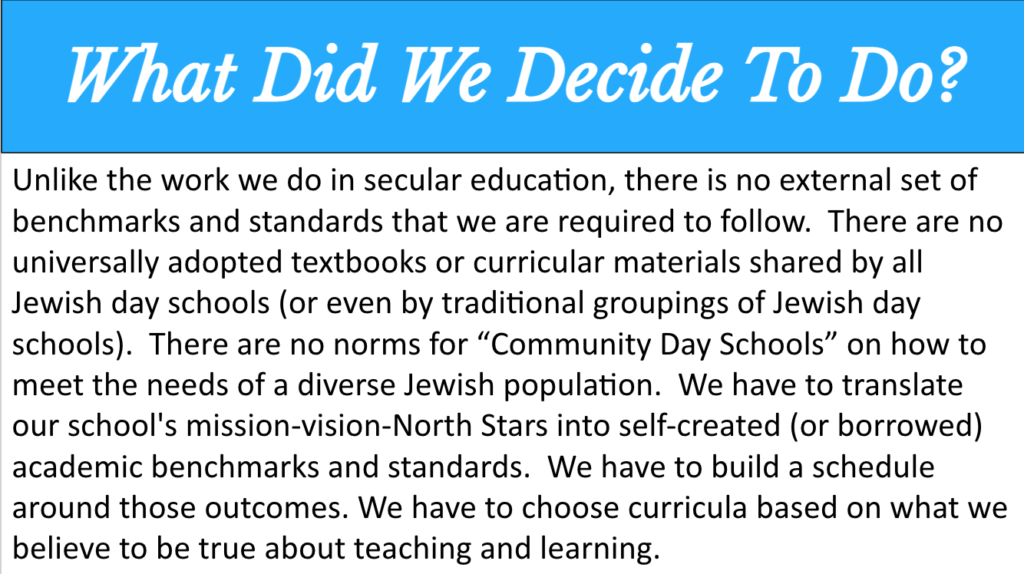
We had a big task in front of us! Remember – or, know – that unlike in General or French Studies there are no external standards, curricula, or philosophies for Jewish Day Schools (of any type). It is up to each school to make these decisions – schedule, curriculum, and clarifying what kind of “Community Day School” to be – important and exciting work indeed. So…
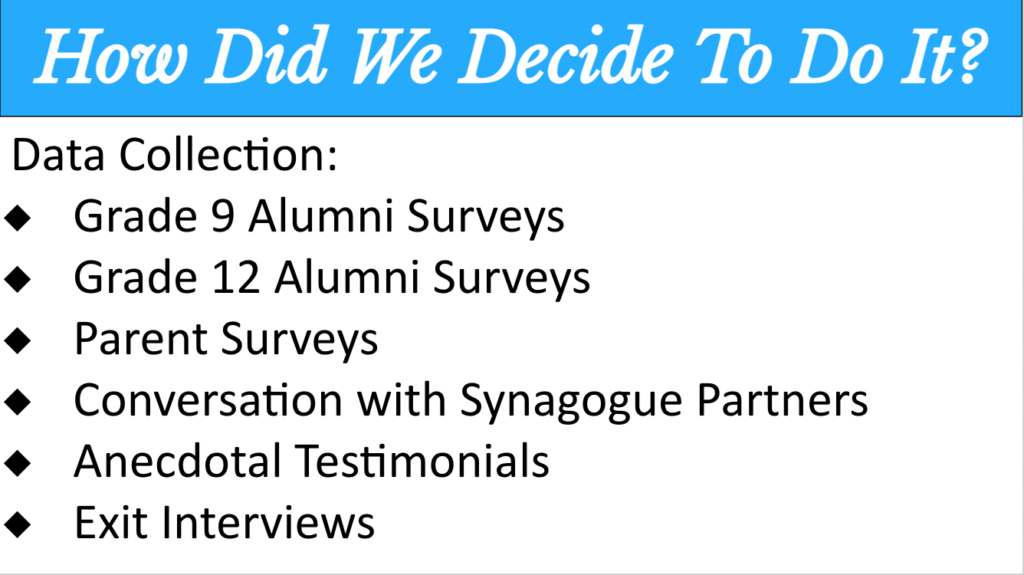 How did we begin the work? DATA!
How did we begin the work? DATA!
But also…
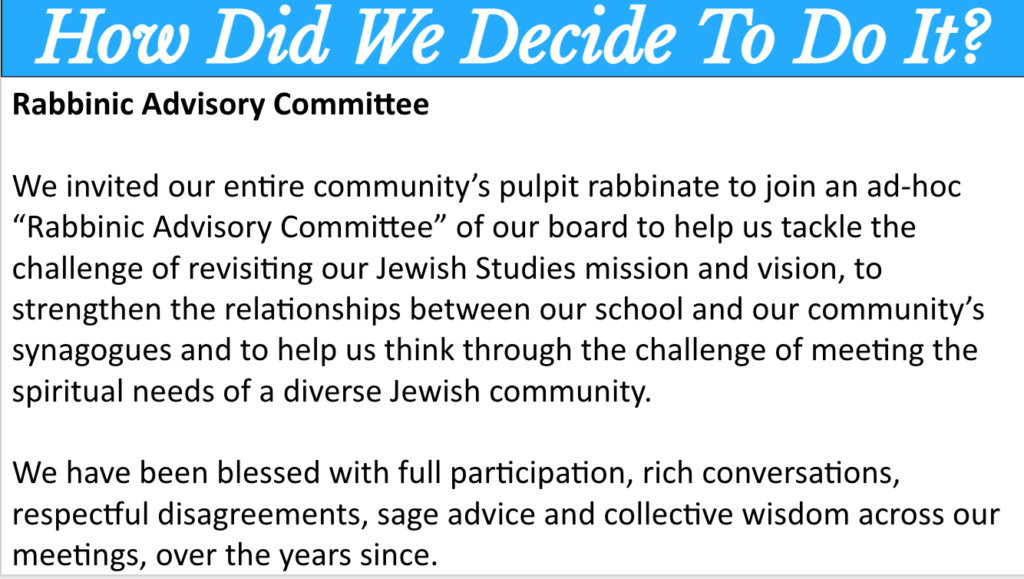
One of my great joys is that we have managed to create a space where each pulpit rabbi in our community is willing and able to sit around one table to engage in debates and disputes that are truly “for the sake of Heaven”.
So once we collected data, what did we wind up doing, beginning in the 2019-2020 school year?
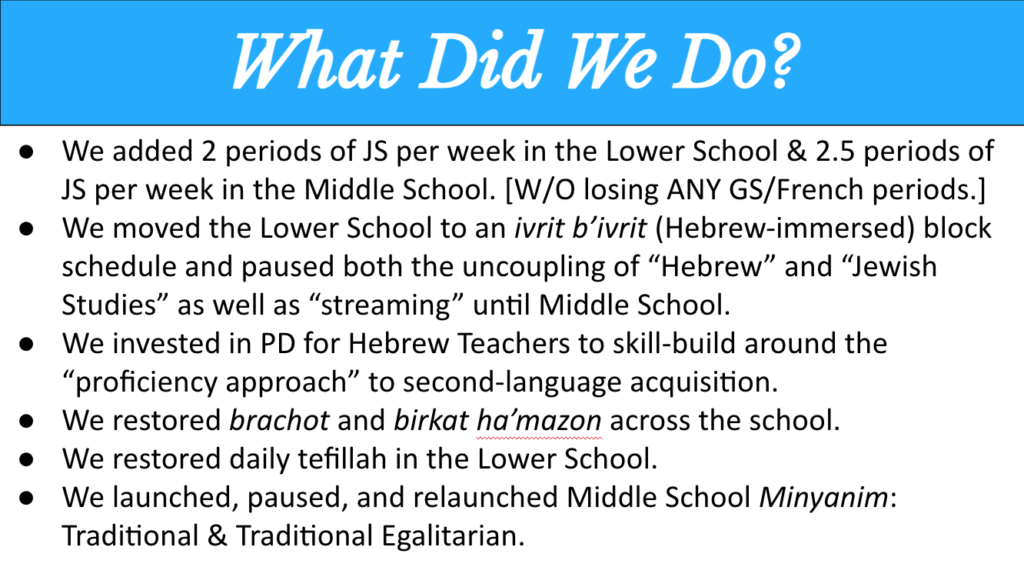
That was quite a lot! And since then what else…
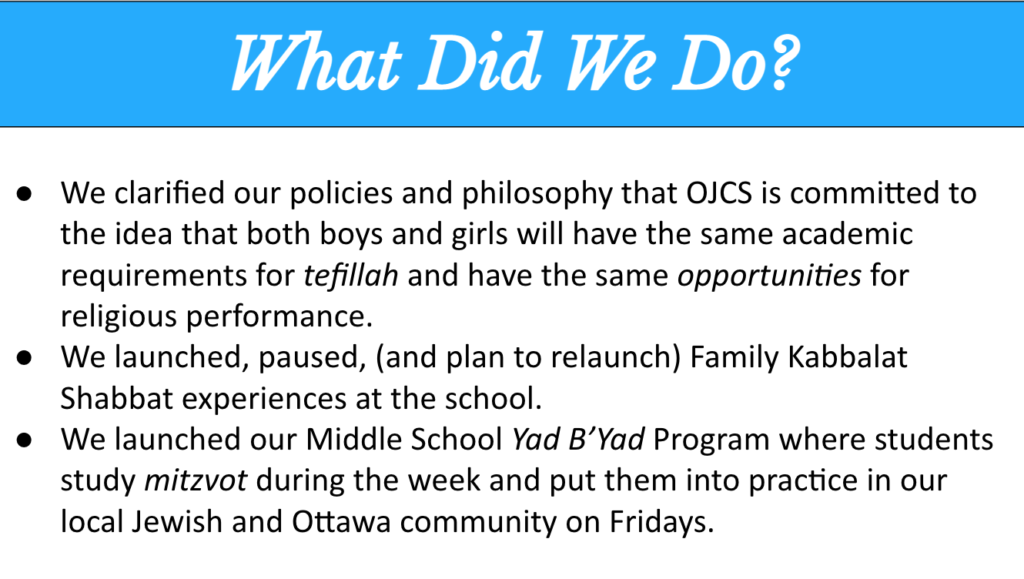
Great that’s what we have done as a result of all the feedback and work over the last few years. But…
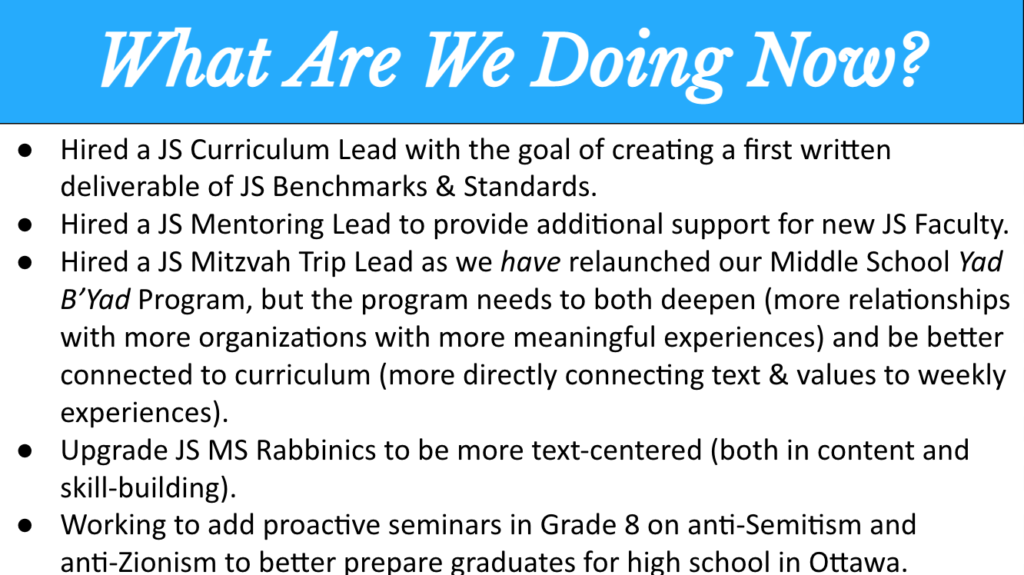
We are very excited about these current initiatives and look forward to sharing back updates, results, gleanings and deliverables as each of these initiatives and programs starts to take shape. That first bullet point hearkens all the way back to the first slide or so and closing that loop is among our highest priorities. It is a huge task and hugely important – so no promises on anything other than transparency as to its process and a pledge to share whatever we can, as soon as we can.
But that’s just today! We have also been thinking about…
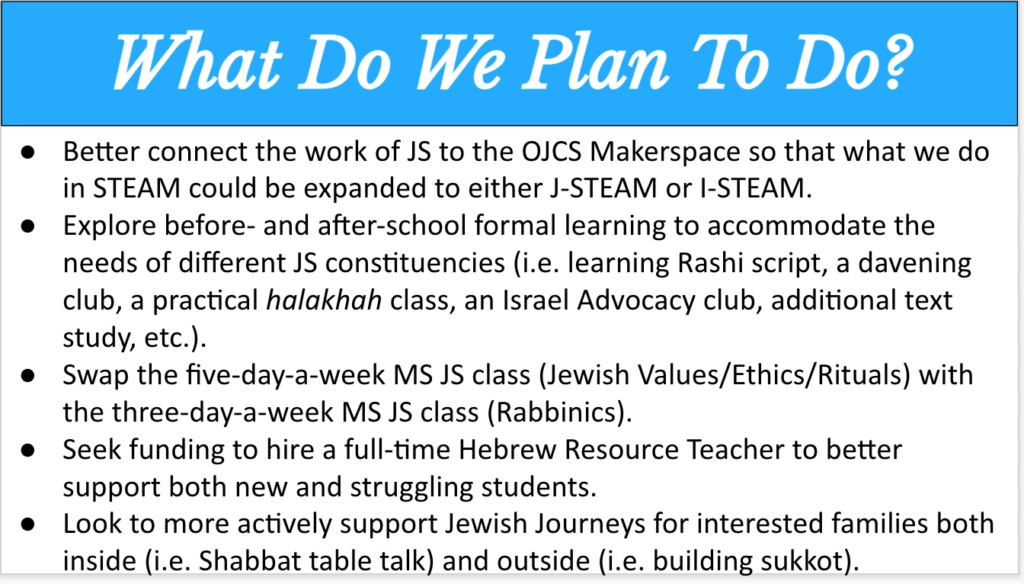
That second bullet point is where you start to come in. As will be true with French, in the weeks ahead we will be reaching out to parents to better understand what kinds of before- and after-school classes and experiences we might offer or be willing to host that may help to either fill gaps or simply enhance our Jewish Studies Program for all our families or, if desired, subcommunities of our families. We really want to make sure we are doing whatever we can to meet needs in whatever ways we realistically can. We do not have time to offer every possible Jewish Studies course or experience, but if we can partner with our parents to add what we can, when we can, it will be a win-win. Stay tuned!
And finally, because I believe in naming those things which need to be named, let me acknowledge what I believe to be…
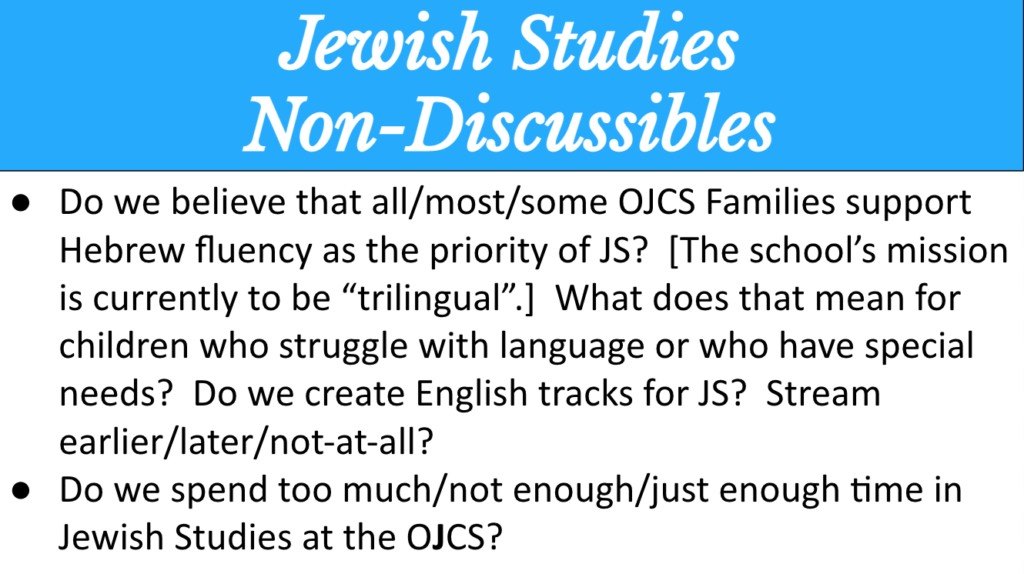 When we did this last, Hebrew was the priority and, to be fair, it is part of our mission. But it is reasonable to ask the question of whether that is still true and to acknowledge that it comes at a cost. And we definitely know that there are a variety of opinions about how much time we could and should spend in Jewish Studies – and I encourage an expansive view of that, including both academic class time and experiences.
When we did this last, Hebrew was the priority and, to be fair, it is part of our mission. But it is reasonable to ask the question of whether that is still true and to acknowledge that it comes at a cost. And we definitely know that there are a variety of opinions about how much time we could and should spend in Jewish Studies – and I encourage an expansive view of that, including both academic class time and experiences.
One interesting piece of feedback that came from the town hall was that maybe, just maybe, there is an appetite for extending the school day to make the task of delivering a high-quality trilingual program a bit more attainable? Do you think that’s true?
And finally, here are some big-picture questions we will be wrestling with as we go about dreaming the next dream for strengthening the “J” in “OJCS”…
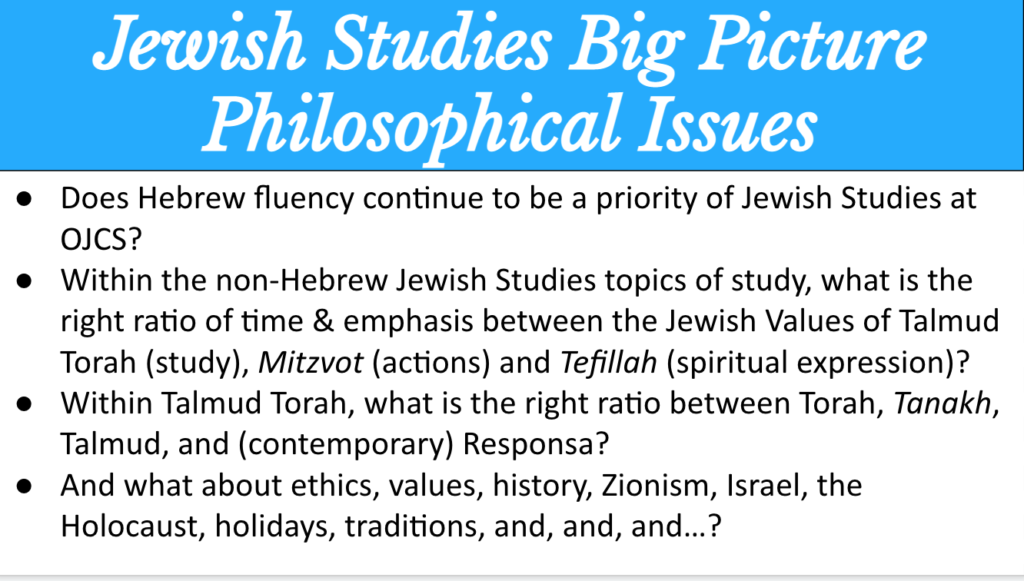
 So…let me repeat that parent voice is critical to our ability to dream big dreams since you, our parents, are our most important stakeholder community and partner. I am making a plea, here, while my word count is now well over 1,000, to please add your voice to the conversation in whichever way is comfortable for you – comment on this blog, shoot me a private email, or make an appointment to come in.
So…let me repeat that parent voice is critical to our ability to dream big dreams since you, our parents, are our most important stakeholder community and partner. I am making a plea, here, while my word count is now well over 1,000, to please add your voice to the conversation in whichever way is comfortable for you – comment on this blog, shoot me a private email, or make an appointment to come in.
This takes the village.

Please be sure to join us for our next Critical Conversation, “L’assembleé de Français – What is currently true about our French outcomes and what can parents expect moving forward?” on Thursday, November 24th at 7:00 PM.

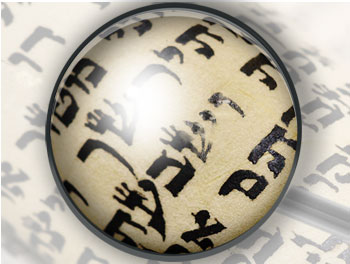


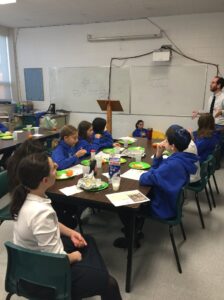 Parasha & Pancakes
Parasha & Pancakes
